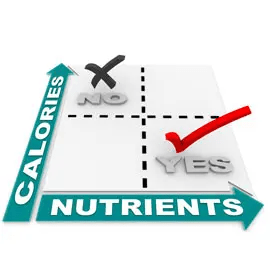Low Calorie Diets
 While some weight loss diets focus on eliminating one food group or reducing the amount of food eaten at certain times of the day, a medically monitored low calorie diet is one of the most effective methods for achieving long-term weight loss.
While some weight loss diets focus on eliminating one food group or reducing the amount of food eaten at certain times of the day, a medically monitored low calorie diet is one of the most effective methods for achieving long-term weight loss.
Calories and Weight Loss
A calorie is a unit of energy. Each of us uses a certain amount of calories daily to perform tasks, like sleeping, walking and talking. We get fuel for these tasks through food. Depending on your height, weight and activity level, you may require anywhere between 1500 and 2500 calories a day to stay healthy.
When you eat too few calories, you may not have the energy to sustain activity. When you overeat and have too many calories, the extra are put into storage as fat.
Low calorie diets limit the number of calories that are eaten throughout the day by:
- Eliminating empty calories like soda and juices
- Cutting out high-calorie foods like sweets
- Reducing portion sizes
- Not eating when you aren’t hungry
Low and Very Low Calorie Diets
A low calorie diet is classified as any diet that includes calorie restriction. Many low calorie diets will reduce daily caloric intake by several hundred calories a day. The goal is to balance the number of calories taken in with the number of calories burned off through daily activities and exercise.
Very low calorie diets take calorie restriction to the next level by greatly reducing the number of calories eaten in a day by utilizing meal replacement shakes and bars. Often, very low calorie diets reduce caloric intake to about 800 calories daily. This sort of diet is often accompanied by some sort of supplementation or weight loss medication to balance hunger and nutritional needs.
It is difficult to manage ideal nutrient intake in a reduced calorie diet, so a low or very low calorie diet should never be attempted except under the supervision of a weight loss doctor.
